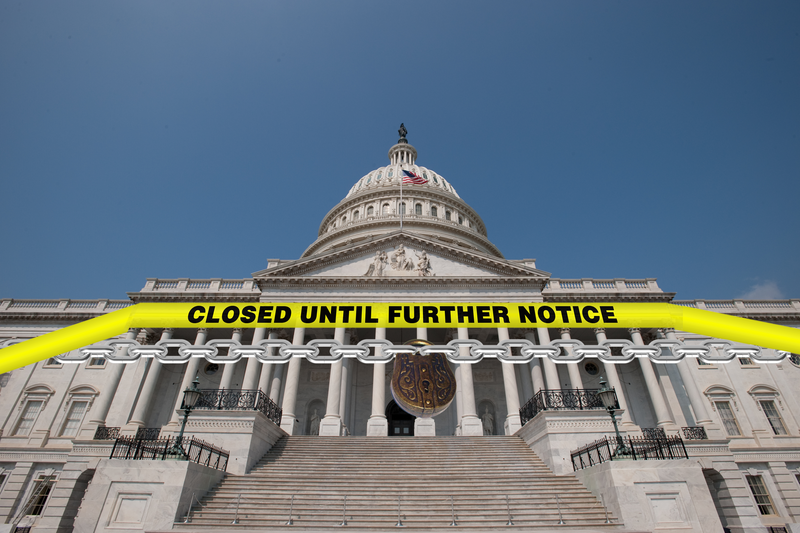
“House Democrats erupted into apoplexy,” Axios reported on March 14, “after Senate Minority Leader Chuck Schumer (D-N.Y.) said he would support Republicans’ stopgap government funding measure.”
With their surrender, Schumer and nine other Senate Democrats enabled passage of a “continuing resolution” that kicked the government’s budget and debt cans down the road yet again, this time through September 30.
Schumer’s case for a yes vote was both practical (without the resolution, the federal government would have gone into a fake “shutdown” and its “non-essential” functions would have been shuttered until a deal was reached) and political (Schumer feared that Democrats would receive more public blame for the shutdown than Republicans).
The Democratic case against that yes vote was likewise both practical (the resolution contained several elements most Democrats oppose) and political (if Democrats won’t stand up to Donald Trump and the Republican Party, why would they expect people to vote for them in the 2026 midterms?).
But let’s not fall victim to confusion here. The Democrats objecting to Schumer’s surrender don’t, for the most part, offer any attractive alternative to the GOP program. Like the Republicans, they’re fine with insane levels of government spending, continuing deficits, increasing debt, and onerous taxation.
The whole thing is half Off-Off Broadway theater and half what Freud called “the narcissism of small differences,” wherein similar people with similar ideas lose their minds over trivial disagreements.
For those of us who aren’t in the tank for either party, it’s less complicated.
First, if a government function is “non-essential,” why is government doing it in the first place?
Second, if we’re going to bother putting ourselves through the recurring ritual of electing supposed representatives to guard whatever we perceive as our interests, shouldn’t we expect those representatives to actually fight for those interests?
The answers to those questions explain the current situation.
Political government itself is “non-essential” and then some, at least to normal people. Its sole purpose is to transfer wealth and power from the productive class to the political class. It’s only “essential” to the preening, posturing sociopaths who sit in, or visit to lobby, offices on Capitol Hill.
The purpose of all the electoral pageantry is to help us convince ourselves that we need them. We don’t.
The federal government shouldn’t just be partially and temporarily shut down. It should be totally and permanently excised and thrown in the biohazard bin like the cancerous tumor it is.
Thomas L. Knapp (X: @thomaslknapp | Bluesky: @knappster.bsky.social | Mastodon: @knappster) is director and senior news analyst at the William Lloyd Garrison Center for Libertarian Advocacy Journalism (thegarrisoncenter.org). He lives and works in north central Florida.
PUBLICATION/CITATION HISTORY


